Harvesting the sun
If 'wine is sunlight, held together by water' then surely we should be harnessing the power of the sun to make it, too? In sunny South Africa it seems quite an obvious solution to help wine farms not only reduce their carbon footprint, but to also create a sustainable energy resource, with the added bonus of not being wholly reliant on the national energy grid.
One such winery looking to our star for its power needs is Vrede en Lust in Franschhoek. “Our wines are vinified by the sun,” says winemaker Susan Erasmus. (Every bottle of wine they send out into the world is stamped with a logo saying so too.)
“We looked at a more sustainable approach to the winery's energy needs, and so we installed the 220kVA system. We operate off the grid during daylight hours and during the first year we cut our carbon footprint in half.”
The photo-voltaic (PV) solar plant generates 374,000 kWh annually—to translate, this is more than enough to meet the winery’s power needs.
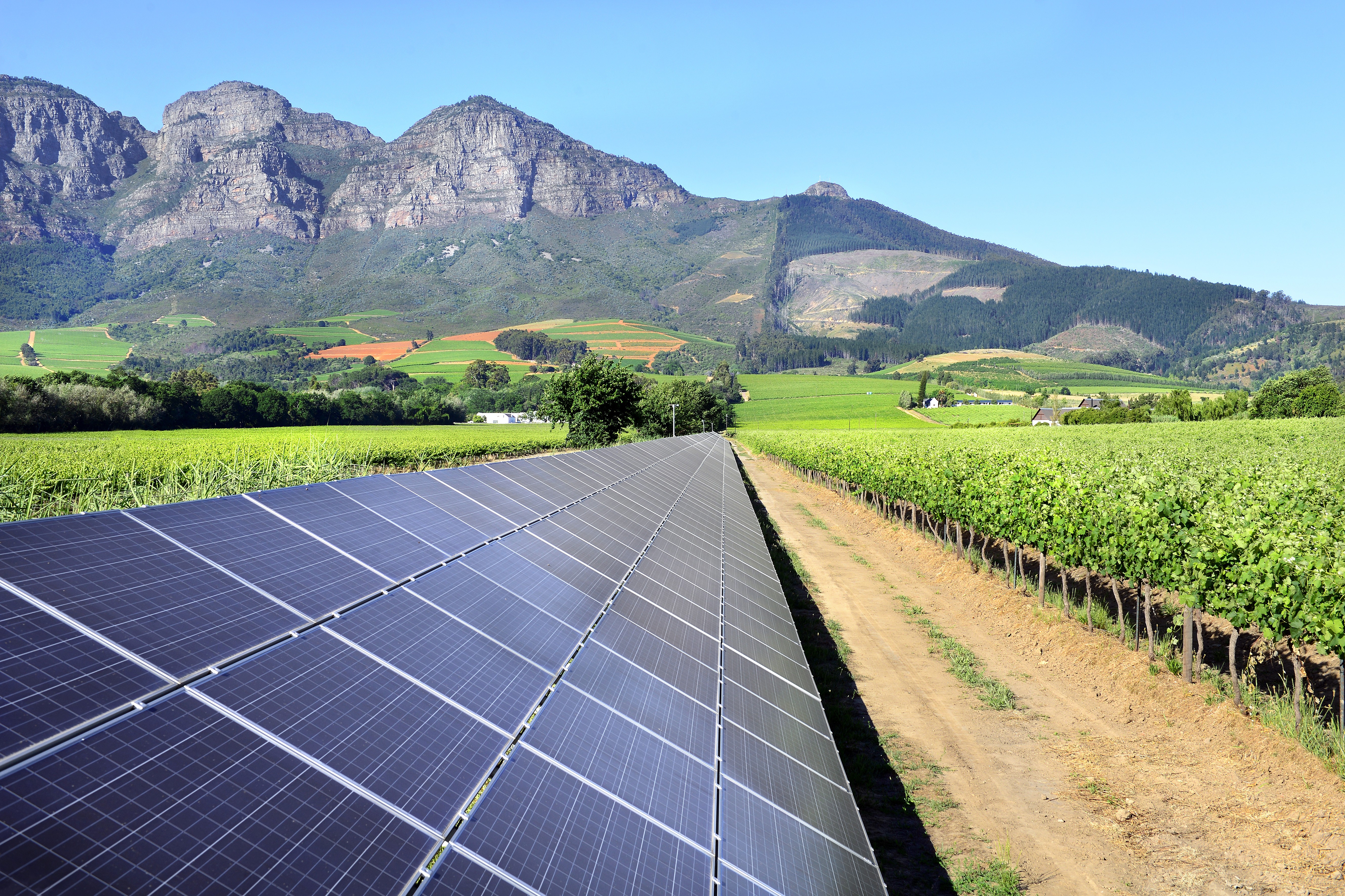
Vrede en Lust installed their system in 2013 and was the first, and at the time the biggest of its kind, in the South African wine industry. The solar power generating system consists of almost 900 solar panels covering the cellar roof as well as a stretch between the vineyards - driving past you can often see it winking in the sun. Not only does it allow the winery to run, but it also powers the restaurant and offices as well as the conference and accommodation facilities on the property.
On a slightly smaller scale, another Franschhoek farm Môreson has also installed solar panel cells in the vineyards ‘in a bid to become self-reliant for power as well as to continue the evolution of greening the farm’.
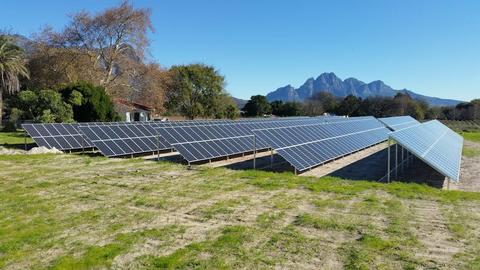
Southern Sun Solar, a solar panel supplier, has been involved with a number of wine farms and is actively pitching to wineries. A spokesperson for the company said, “The wine industry has long had a tradition of trying to have as little impact to the surrounding area as possible. The conservation aspect of the wine industry is important and incorporating solar power into that mix makes a lot of sense. Additionally, making wine requires a lot of electricity. If one can control that cost it allows those savings to be used somewhere else”. Southern Sun Solar was also responsible for installing the system at Stellenbosch farm, Stellekaya, where the 10Kw system powers the main house on the farm.
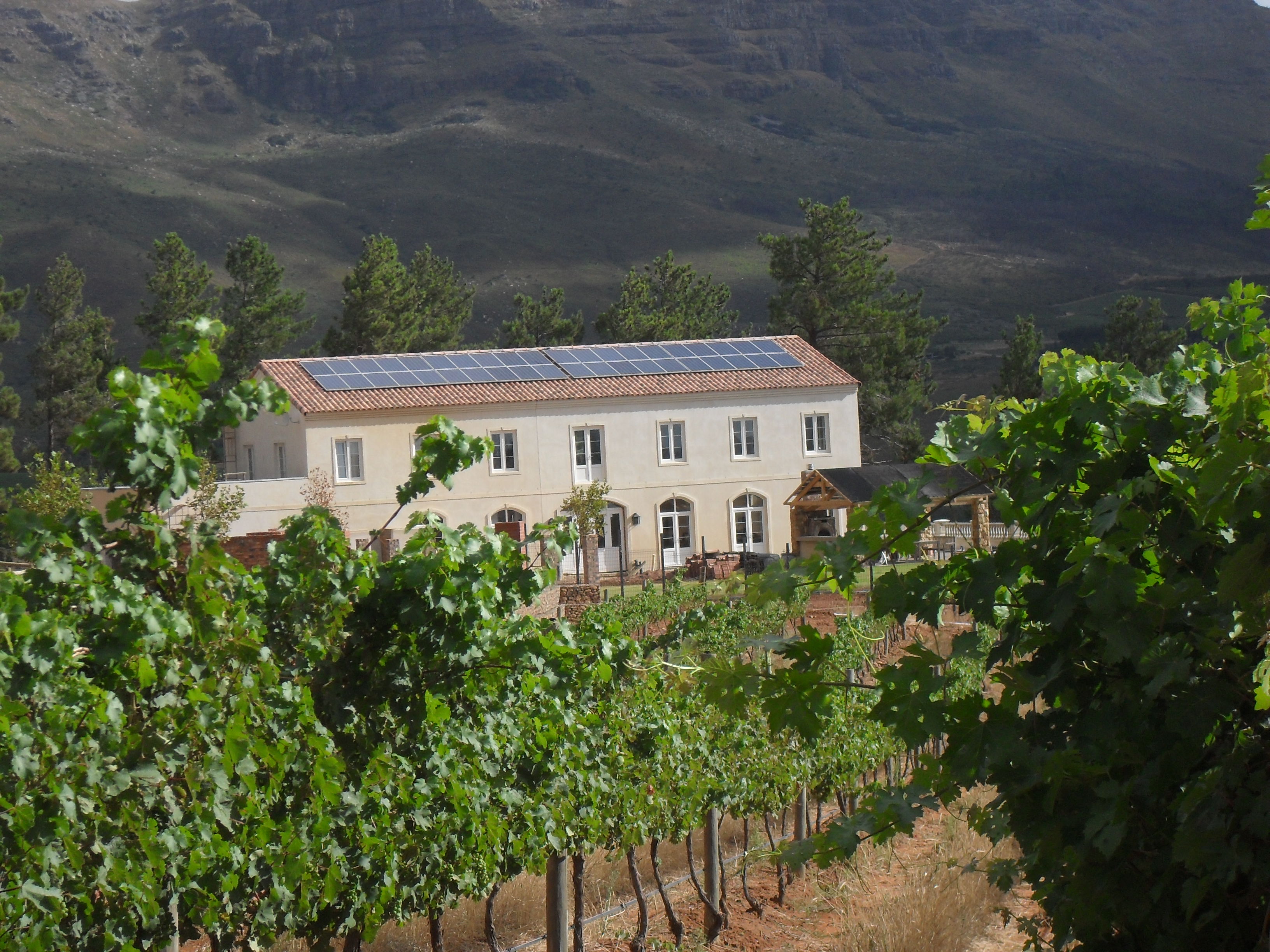
Also in Stellenbosch, Blaauwklippen Vineyards has tapped into the power of the sun with the help of Soventix South Africa. The project was completed in just seven days and it produces nearly 6,800kWh of power each year, and will do so for the next 20 to 30 years.
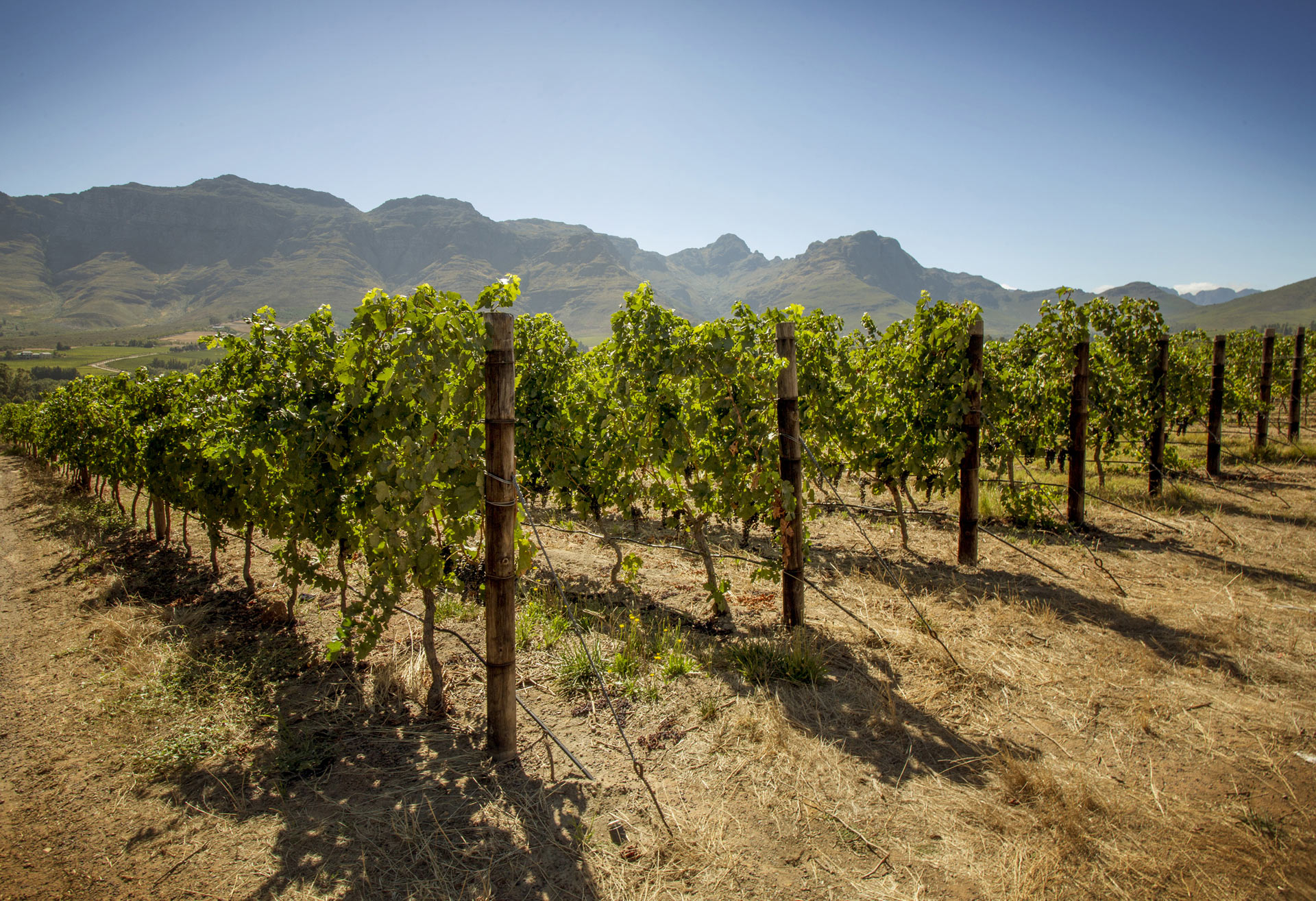
“A single solar panel here in South Africa is twice as effective as it would be in Germany”, said Rowan Jacklin, General Manager of Soventix South Africa. “Even this rather small system already has tremendous positive effects on nature. It avoids the emission of nearly 7 tons of CO2 every single year, which is not only important from an environmental perspective, but also on reducing the future carbon tax that will be imposed South Africa is blessed with many hours of sunshine so the potential yields of a solar system are much larger than most other countries in the world”.
Douglas Green Bellingham, which exports its wines to more than 70 countries all over the world, definitely sees this potential. At their Wellington winery there are 2‚600 solar panels covering four roofs over 6‚200 square metres. This forms the largest rooftop solar photovoltaic power plant in the South African wine industry.
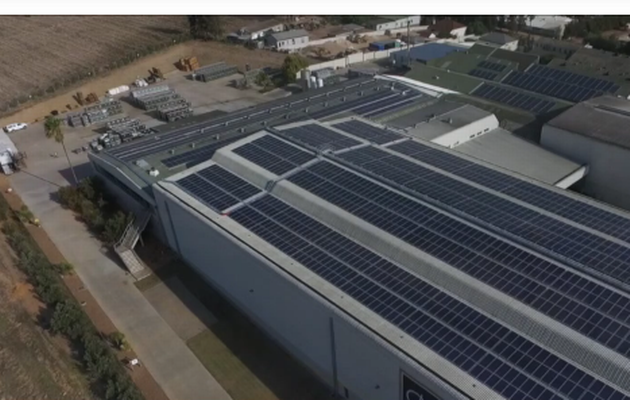
Installed by Terra Firma Solutions the carbon emissions saved are said to be the equivalent of driving a small car from Cape Town to Johannesburg 5‚550 times a year.
In South Africa the path to a future of renewable, clean energy couldn’t be more well-lit; and with consumers driving the market for sustainable wines, it seems only a matter of time before our wine industry is powered completely by the sun.
Plus, if the apocalypse does happen to hit, at least we won’t run out of wine.
-Malu Lambert